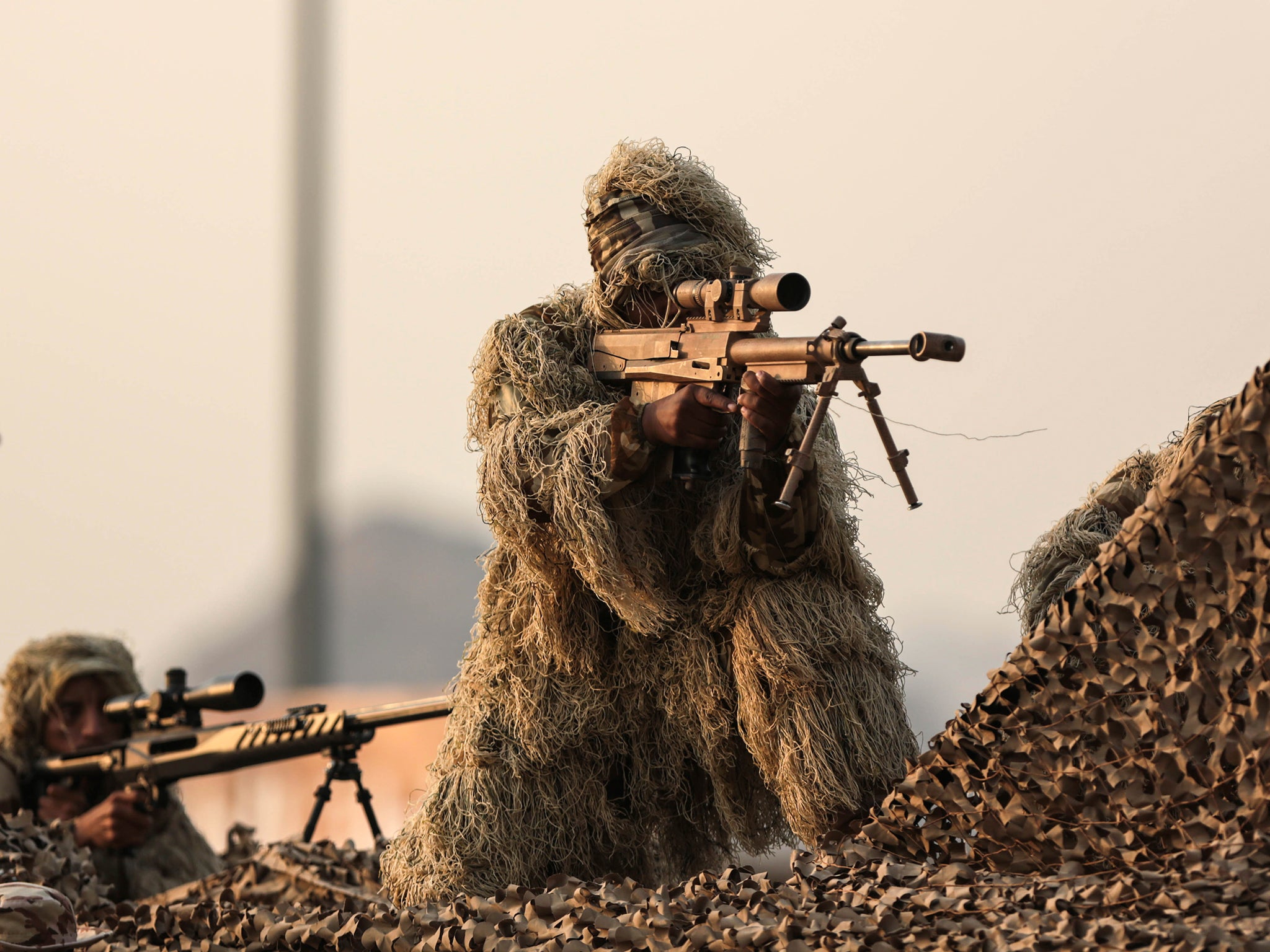How Saudi Arabia sending ground forces into Syria will have huge ramifications on the civil war
While the soldiers are intended to fight Isis, they may find themselves clashing with Iranian ‘volunteers’ and Lebanese Hezbollah fighters in what is a highly combustible situation

Your support helps us to tell the story
From reproductive rights to climate change to Big Tech, The Independent is on the ground when the story is developing. Whether it's investigating the financials of Elon Musk's pro-Trump PAC or producing our latest documentary, 'The A Word', which shines a light on the American women fighting for reproductive rights, we know how important it is to parse out the facts from the messaging.
At such a critical moment in US history, we need reporters on the ground. Your donation allows us to keep sending journalists to speak to both sides of the story.
The Independent is trusted by Americans across the entire political spectrum. And unlike many other quality news outlets, we choose not to lock Americans out of our reporting and analysis with paywalls. We believe quality journalism should be available to everyone, paid for by those who can afford it.
Your support makes all the difference.The sending of ground forces by Saudi Arabia into Syria will have immense ramifications for the country’s civil war and the wider region. The question, however, is whether it will actually take place.
The Saudi announcement comes at a time when prospects for peace have faded with the collapse of the Geneva talks and the conflict has intensified with regime forces attempting to encircle Aleppo backed by heavy Russian air strikes.
The already sour relationship between Russia and Turkey, backers respectively of the Syrian regime and rebels, has also worsened. Ankara accuses Moscow of being complicit in trying to impose a “starvation siege” on Aleppo while the Russians claim the Turks are planning to invade Syria.
Any Saudi troops going into Syria will find themselves at the centre of a highly combustible situation. Although the ostensible reason for their presence would be to fight Isis, they may find themselves clashing with Iranian ‘volunteers’ and Lebanese Hezbollah fighters.
The leading Sunni state in the Middle-East, Saudi Arabia, will find itself in confrontation with the leading Shia state, Iran, and its allies. The bitter enemies have been engaged in proxy sectarian wars in a number of places, most currently in Yemen; this time they will be in the same battle-space.
But will the Saudi ground intervention against Isis actually happen? The Saudi and other Sunni Gulf states are part of the US-led air campaign against Isis. But they have not even been taking part in this for months, forced to focus instead on air strikes on Iranian backed Houthi rebels in Yemen who are proving far harder to see off than expected.
There was talk at the beginning of the campaign of an army of Sunni states going into Yemen. The Saudis did not offer to lead it, trying instead, unsuccessfully, to sub-contract this to the Egyptians and the Pakistanis. The task is now being largely undertaken by a force of mercenaries, including Latin Americans and South Africans, organised by a US company.
On Thursday, Adel al Jubeir, the Saudi foreign minister, gave interviews to foreign media outlets. Surprisingly, he failed to make any mention of the proposed Syrian intervention.
This came, instead, later from a relatively junior official, Ahmed Asiri, a spokesman at the defence ministry. The statement was carefully worded. Saudi Arabia “is prepared to participate” in a ground operation in Syria, it said, “if there is consensus among coalition leaders”. In other words the Saudis would join a ground force rather than be one themselves.
There is a possibility that the Saudis may join the Turks if Ankara tries to set up a buffer zone, as they had proposed in the past, inside Syria. But such incursion may lead to clashes with the Kurdish YPG group, enemies of the Turks, but allies of the Americans against Isis.
So, the scenario in Syria remains convoluted and confusing. There may be a bit more clarity on plans of the anti-Isis coalition after a Nato meeting in Brussels next week. It remains highly unlikely, however, that the Saudis will do anything on their own.
Join our commenting forum
Join thought-provoking conversations, follow other Independent readers and see their replies
Comments